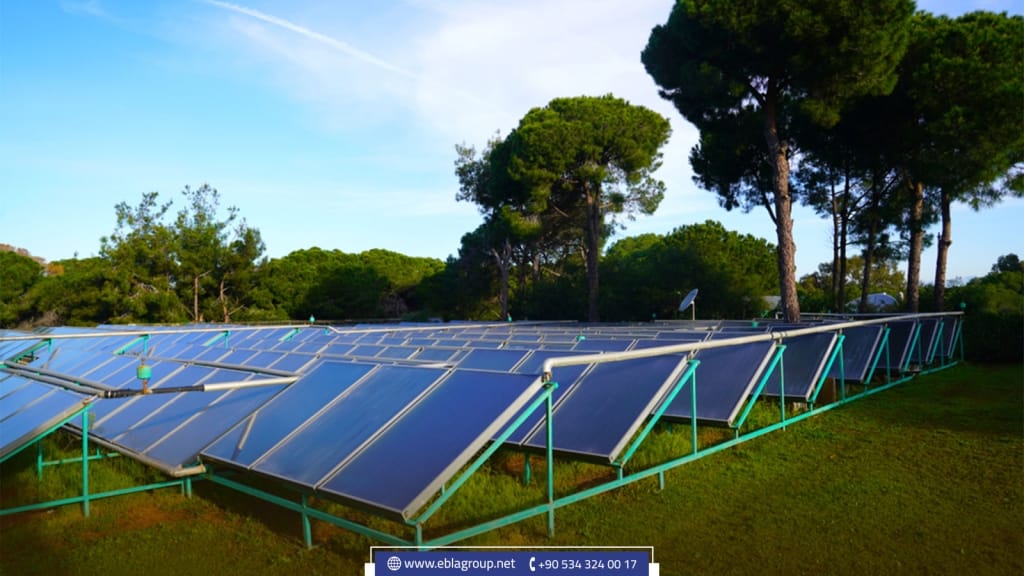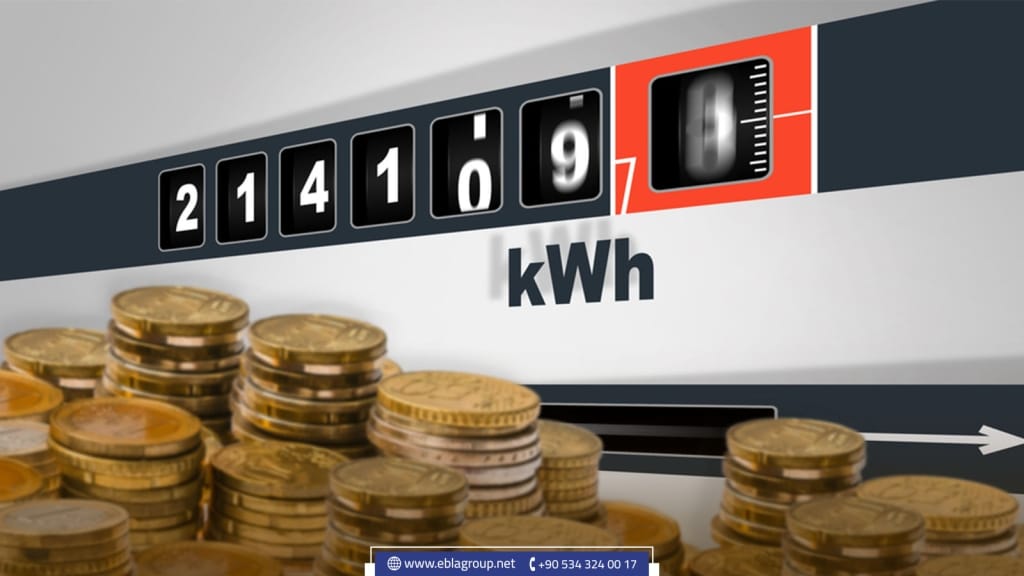Solar energy in Turkey
Solar energy in Turkey. Turkey has a promising potential with respect to solar energy due to the annual sunshine duration especially in the south part. Moreover, legal reforms in the electricity market and investment incentives especially in renewable energy play an essential role. In this article from Ebla Real Estate, we will talk about solar energy in Turkey.

The average annual solar radiation in Turkey:
The climate of Turkey is very suitable for solar power as solar potential is very high, especially in the South Eastern Anatolia and Mediterranean regions.
Turkey has a sunny climate, ideal for producing solar power. There are about 2600 hours of sunshine each year (about 7 hours a day). Turkey’s average annual solar irradiance is over 1 million TW h, that is about 1500 kW h/(m2 yr) or over 4 kW h/(m2 d).
Data of the Turkish Ministry of Energy and Natural Resources on solar energy:
- Turkey started producing installed solar energy in 2014. That year, its production reached 40 megawatts.
- In 2015, Turkey managed to increase its production of installed solar power to 249 megawatts.
- Moreover, the installed solar energy production reached 833 megawatts in 2016.
- In 2017, the volume of solar power production in Turkey increased to 3,421 megawatts.
- Furthermore, in 2021, a new solar power plant with a capacity of 1,149 megawatts was opened and integrated with the public grid. Thus, the installed solar capacity in the country reached 7,816 megawatts.

Projects of solar energy in Turkey:
Turkey’s first integrated solar cell and panel production facility was opened outside Ankara late last year. The plant will provide solar energy equipment for the Karapinar site, Turkey’s largest solar facility. With the capacity to produce 1,000 megawatts (MW) in green energy – enough to power some 600,000 households – Karapinar will be one of the world’s largest solar power plants.
Moreover, Turkey’s installed solar power capacity rose from 40 megawatts in 2014 to more than 8,000 megawatts in 2022.

The future of solar energy in Turkey:
Keen to capitalize on its renewable energy potential, in 2014, the Turkish government announced as part of its ‘2023 Vision’ – the year coinciding with the Turkish Republic’s centenary – plans to boost the country’s alternative energy sources significantly.
Initially, Turkey aimed to install 34 gigawatts (GW) hydroelectricity capacity, 20 GW in wind energy, 5GW from solar energy and 1GW each from geothermal and biomass. In the result, the success of the initiative has exceeded initial expectations.
By 2016, senior figures in Turkey’s solar industry were already predicting that the country would exceed its planned solar energy target. This plan will see renewable energy sources make up for some 30 percent of Turkey’s energy needs in 2023.
In addition, Minister of Energy and Natural Resources Fatih Donmez said “Turkey aims to increase its solar power panel production capacity to 9,110 megawatts by 2023 and become one of the top three producers in the world in this field”.

Thus, we talked about the solar energy in Turkey.
Edited by: Ebla Group Real Estate
If you like the topic, do not forget to share it with your friends.



